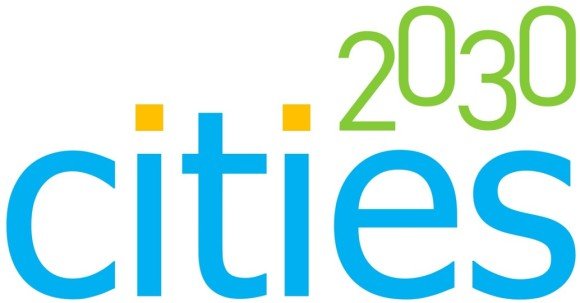Living: Innovation action plan
1. CRFS vision 2030 and challenge statements
Region: Iasi CRFS System: Iași, the main urban centre of the North-East Development Region, with a population of 500,000 inhabitants (including the metropolitan area), poses a rather challenging CRF. At the same time, the North-East Region is an important agricultural area of Romania. Accordingly, Iași city is a huge marketplace for the producers from the region.
Food for Iasi Living Lab (FILL) short description: Food for Iași Living Lab (FILL) is based on the idea of an innovative workshop that is at the core of the Living Lab concept and runs its activities through an innovation hub in the urban food systems of Iași city. FILL addresses the urban food system of Iași city, including the metropolitan area and local producers in close vicinity of the city, especially producers who run their business activities in rural areas.
CRFS 2030 vision: Improving the quality of life in Iași by encouraging healthy food, short food supply chains, production and consumption of organic food, waste management and last but not least, by increasing the level of trust between local producers and consumers.
Challenges:
FILL will organise more joint events for stakeholders of Iași CRFS, by encouraging the joint identification of issues and by developing a unitary set of intervention tools, such as actions, methods, models, policies, and strategies designed to address and hopefully solve these issues. FILL objectives:
-
Developing the collaborative framework between the actors and agents of the urban food system,
-
Identifying the particular features of their own urban food system,
-
Identifying the particular issues of their own urban food system,
-
Analysing the identified particular issues,
-
Identifying the possible solutions for coming up with answers to the identified particular issues,
-
Generating models of good practices,
-
Knowledge transfer to direct and indirect beneficiaries.
2. Collaboration with stakeholders
Multi-actor, participatory, open, gendered and responsible innovation: FILL collaborates with a group of stakeholders built on the quadruple helix system (business environment, governance, academia, and public, as in citizens/civil society). The methodology used is basically relying on the following: (1) systems thinking model for data gathering (model developed within D3.3 Systems Thinking Methodology), (2) collaboration with stakeholders as actors of the system (entities maintaining the system in its current shape) and agents (entities forcing the change of the system). The cooperation with stakeholders started long before this project and, accordingly, is based on effective communication and teamwork. The group of FILL stakeholders is approximately the same group employed in other projects, which provides a series of significant synergies with other activities.
Open and responsible innovation, and Gender: The implementing team of the project (P28 IASI and P29ARFI) is a gender-balanced team. The research team publishes the results obtained within the project in an open access system only, in accordance with the specific deontology and European values. The stakeholder group is also gender-balanced.
3. Living Lab resources
Resources: (1) The constant collaboration between Iași City Hall and Iași Branch of the Romanian Academy, (2) Food for Iasi Living Iasi website is an umbrella for the activities run within the project and also provides synergies with other activities related to other projects, (3) qualified staff with experience in administration, projects, organisation of events, scientific research in food domain, public communication, (4) at least 32.500 EUR (salaries are not included).
Innovation Facilitators’ role and contribution: The activities of Food for Iasi Living Lab have the following objectives: (1) encouraging stakeholders to implement models of good practices from other food systems that were presented by project partners (as light innovation), (2) encouraging local producers to collaborate with academia and thus come up with innovative ideas, as in novel products for the local market.
Durability and Sustainability: (1) collaboration with stakeholders extended over the post-implementation period, (2) Food for Iasi Living Iasi as an umbrella platform for the activities during the post-implementation period, (3) “Iasul în bucate” fair (Iași fair of traditional dishes), “Piața verde de weekend” fair (The Green Market Weekend) as permanent events organised in Iași city and financially sustained by Iasi City Hall.
Possible investments outside the Cities2030 grant: In the next period of implementation, we will try to identify and describe possible investments outside the Cities2030 grant.
4. Living Lab experiments
|
Experiments |
Description |
| Cooking workshops for children | So far, FILL has organised 9 cooking workshops for children. The following objectives were particularly targeted: educating about healthy food, changing the food behaviour, learning and changing the behaviour about food waste, learning and changing the behaviour about composting. |
| Regional fairs | FILL organised 3 regional fairs under the brand of Iașul în bucate (Iași fair of traditional dishes) in July, August, and September 2022 to introduce the benefits of the short food supply chains, elevate the consumer's level of trust in local producers. |
| Local Mobile Farmers Markets | FILL has organised 4 mobile farmers markets to increase the consumer’s level of trust in short food supply chains and urban food markets. |
| Scientific research projects | (1) Systems Thinking Methodology, (2) Influence of pandemics on the food purchase behaviour of consumers from Iași, (3) The opportunity to organise mobile farmers markets in Iași CRFS. |
| Reports about knowledge transfer | The offer of knowledge transfer from academia towards the business environment. For instance, recipes for prepared food products. Actions: mediation of academia with the business environment through focus groups, data analysis, and making a report. |
| Waste management pilot action | Implementing a system in one school to help prevent/reduce food waste with the purpose of learning and changing the behaviour about food waste and composting among children, monitoring the results and multiplying to other schools. This activity will provide synergies with other activities related to the project. |
| Informative campaign within schools | Let’s eat healthy! The aim is for more children to understand what sustainable and healthy food means and to develop an affinity with it. The workshops organised in schools, within the campaign, will contribute to secure healthy and sustainable food and develop food culture and skills for Iasi citizens. |
5. Other Living Lab's measures
Capacity building actions: (1) Food for Iasi Living Lab website: www.fill.rdrp.ro, (2) Organise conferences, (3) Communicators Community Training, (4) CRFS videoclips.
6. SMART Goals
|
Indicators |
Description | Baseline | KPI (Total) | |
| Living Lab Participants | Food for Iasi stakeholders are a well-structured community that covers all society levels of the quadruple helix model: business environment, academia, public administration, and civil society. | 20 | 30 (2024) | |
| Living Lab workshops | FILL workshops are engaged in key interaction activities with stakeholders, data collection based on IASI CRFS activities, and research enterprises such as verifying hypotheses and scientific conclusions. | 3 | 10 (2024) | |
| Scientific Articles | Besides the presentations held at scientific conferences, the scientific papers are the most important channel of dissemination for FILL. | - | +2 (2024) | |
| Best Practices Reports | (1) Systems Thinking Methodology (D3.3 Deliverable), (2) presentation of producer with traditionally certified products, (3) presentation of producer with organically certified products, (4) presentation of a producer who is engaged in an environmentally friendly agriculture (permaculture). | 1 | 4 (2024) | |
|
SHERPA (H2020 project Synergy), RURALITIES (Horizon Europa project synergy), Gust de Iași (National project synergy), Asociația producătorilor locali Produs în Iași (NGO synergy), Life Sciences University, Iasi (academic synergy), Direcția pentru Agricultură Județeană Iasi (gouvernance synergy) | 5 | 10 (2024) | |
| Social media posts and reactions | Posting on Facebook accounts of the project and getting reactions at these postings. | 200 | 500 (2024) | |
| Improvements | Working with public institutions (main actors involved in the supply chain) to improve the healthy snacks delivered to the childrens in schools and aiming to provide better nutrition for them. | 0 | 2 (2024) | |
| Raising awareness | Through public outreach events (regional/national conference/workshops) | 0 | 2 (2024) | |
| Signing pacts and strategies | (1) Signing the The Milan Urban Food Policy Pact (MUFFP) by Iasi City Hall, (2) Including the signing of MUFPP on the new URBAN DEVELOPMENT STRATEGY OF IASI CITY | 0 | 2 (2024) |
7. Communication, dissemination and exploitation
Communication is provided through the following channels: (1) project website (cities2030.eu), (2) platform supporting the Project Forum, (3) various working groups from WP3, WP4, WP5 WP7, (4) Communicators Community, (5) website of Food for Iasi Living Lab (fill.rdrp.ro), (6) permanent events (The food fair, as in Iașul în bucate aka Iași fair of traditional dishes, Piața verde de weekend aka the Green Market Weekend), (7) stakeholders workshops.
Dissemination is delivered through the following channels: (1) social media and web-based dissemination, (2) academia through communications presented on scientific events and papers published in scientific journals, (3) printed informative materials (flyers with organic, mountain, and traditional food products, flyers about the project, flyers about Food for Iasi Living Lab), (4) educational workshops for children within the Fair of Iașul în bucate (Iași fair of traditional dishes).
Exploitation is provided through the following actions: (1) taking part in making the methodology of Systems Thinking as pilot methodology employed for data collection through meetings/workshops/events with stakeholders, (2) models of good practice related to the Communicators Community as a communication tool within projects.
8. Continuity- and scale-up measures
- During the post-implementation period we will attract fundings to support FILL from the following sources: local, regional, and national financing,
- FILL infrastructure will be used as a resource for other projects in the post-implementation period,
- The scientific deliverables will be used as items of relevant published literature in the research projects conducted in Iași Branch of the Romanian Academy.
9. Risk assessment
|
Risk |
Probability & Severity | Mitigation & Elimination |
| Since working with a stakeholders group is a common practice in all European projects, there is a certain risk in losing the interest of stakeholders. | Medium | To mitigate this risk, FILL involves stakeholders in a wide range of activities, such as workshops, fairs, cooking workshops for children, online product tasting or in person and so on. |


